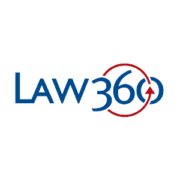The Art Of The Mock
By Javier A. Lopez and Tal J. Lifshitz
Law360, New York (December 10, 2015, 9:52 AM ET) — Who is the perfect juror? What is the most effective theme? What evidence is the most compelling in the eyes of the jury? These and many other similar questions haunt the minds of many trial lawyers, because high-stakes commercial litigation trials are multimillion-dollar productions with little room for error.
Skilled litigators often execute “mock trials,” playing out every element of trial from jury selection to closing arguments. These mock trials can be invaluable in ways far beyond serving as a dress rehearsal. Used correctly, mock trials can exponentially increase a client’s chances of securing a favorable litigation result (including avoiding trial altogether).
The Mock Approach
Logistically, the mock trial can be set up in numerous different ways. Here are some examples:
- Full trial, replete with opening statements, presentation of evidence and closing argument. This boasts obvious benefits by giving trial counsel the greatest opportunity to test themes, order of proof and presentation of evidence. It is also the most impractical due to its high expense and prohibitive time constraints.
- Condensed trial, with limited opening statements, evidence and closing argument. This is more practical, giving trial counsel the opportunity to present the most important points of their case and receive jury feedback, while limiting time and expense.
- Hybrid Trial/”Clopening,” with opening statements, evidence and closing argument wrapped into a single presentation for the jury. This is the version that our firm used when mocking a two-hundred-million-dollar Ponzi scheme case perpetrated by the now-infamous Scott Rothstein against a major banking institution. This form of mock can be completed in a day, with time left over to view the jury’s deliberation, receive feedback from the jury, and engage in a question-and-answer session with the jurors.
- Focus group: a presentation of facts and evidence to the jury followed by a targeted question and answer session. Focus groups are the least expensive form of mock trial and are a great way to test themes, gauge the significance of certain evidence or testimony, and narrow trial counsel’s pool of favorable jurors based on juror background and response.
This variation in form is one of the beauties of the mock trial. While complex commercial disputes rarely get tried, the number and nature of mocks are limited only by the budget and creativity of the attorneys and their clients. Attorneys can test out new themes and theories, experiment with orders of proof, and get “jury experience” (unfortunately this is as close as many “high-stakes” trial lawyers are getting to trial these days). They can present only one side of the case, or both. They may use or exclude evidence that might not be admitted at trial to gauge its value. There are no hard and fast rules about how to set up the mock — the goal is to develop your case, deal with your weaknesses, and find your ideal jury.
Here are a few of the benefits of the mock trial.
Develop the Cornerstone of Your Case — The Theme
Trial lawyers must think about their theme of the case from the inception of any new litigation; for instance: greed, revenge, accountability, “too good to be true.” Putting on a successful trial requires telling a story and a lawyer who knows how to deliver.
Conducting an early mock trial will help the trial lawyer develop the theme of the case, confirming that she’s on the right track or that she needs to tell a different story. The early mock trial has the added benefit of exposing weaknesses of the case, for which attorneys can then plan solutions.
A mock trial after dispositive motions is also valuable, once the theme has been refined and the presentation of argument and evidence are tailored to the story.
Who is the Best Juror for My Case?
Mock trials are also an opportunity to learn about the jury, formulate strike questions for cause to pick the ideal juror, and identify the best questions to weed out undesirable jurors or conversely to secure ideal jurors.
Jurors of certain backgrounds bring different life experiences with them to deliberations. Outside of chasing down a juror post-verdict, the trial lawyer rarely gets to hear how his jurors’ life experiences impacted their deliberations.
Moreover, in a mock setting attorneys can get resumes of their jurors before trial to zero in on the specific background that is helpful or unhelpful for the case. And the more you mock, the more accurately you will be able to hone in on the juror that suits your case.
Deliberations can also be viewed live, recorded, transcribed and followed up with questions by the attorneys as to what was effective and what wasn’t, both in terms of substance and in terms of style.
The Jury’s Findings Never Lie: Listen to Them
As lawyers, we believe that whatever we view as the most important aspect or evidence in the case must be so. But inevitably jurors will focus on matters that the lawyers do not view as important, and will not focus on matters that the lawyers try to emphasize. This goes beyond, “I liked one attorney’s shoes more than the other.” It’s more along the lines of, “I didn’t trust the defense’s star witness; he was shifting too much in his chair.”
Witnesses can be prepared if a problem is revealed. The mock trial can expose these and similar problems and alert trial counsel to the need for some change.
Beyond exposing weakness, jurors also give invaluable insight into what is effective in the presentation of evidence. During our firm’s Ponzi scheme mock, one juror commented that he thought the presentation of an email was misleading because the attorneys only highlighted and read one sentence of the paragraph. Of course, the rest of the paragraph was irrelevant. But the juror didn’t know that, and he interpreted the attorney’s presentation as misleading.
A trial lawyer cannot afford to have his or her jury feel manipulated. Learning that the use of a particular visual aid could potentially be viewed as misleading is crucial to an effective presentation of evidence and, ultimately, keeping the trust of the jury.
The Mock Can Dictate Settlement Negotiation Strategy
Commercial litigators understand that litigating a case to trial involves an ongoing valuation process. Understanding the true value of the case is critical to the trial lawyer, who needs to know when to push for a jury or advise the client to pull the trigger on settlement. The mock trial informs the valuation process, letting trial counsel know the strengths and weaknesses of all parties’ cases, and how to proceed with any settlement negotiations accordingly. The results of mock trials going in a negative direction could even help change the mind of a stubborn client, insurance carrier, etc.
Based on our experience, here are a set of best practices for trial counsel looking to successfully execute the mock.
Best Practices
Prepare the best possible opposition. There’s no better way to learn the true value of your case than forcing yourself and your team to learn the true value of your opponent’s. (Mocking the opponent’s position has the added benefit of giving more junior members of the trial team experience in presenting arguments and evidence.) Knowing the opponent’s weaknesses is critical, but knowing how to deal with their strengths is equally important.
Observe the deliberations. Once the attorneys’ presentation is complete, listen to the jurors and their discussion (ideally from a separate room via a live feed; the jurors will be uncomfortable discussing the case with the attorneys in the room.) Note what the jurors focus on, who they believed among both the attorneys and the witnesses, and what evidence they found compelling or disregarded. Get as much information from the jury as you can. In one mock trial we had the jurors hold clickers with a “plus” and “minus” button for them to express when they liked or disliked what the attorney was saying. Although a humbling process to see the “line” go up and down based on what you were saying in real time, it was an incredibly powerful way to zero in on what worked for the jurors and what didn’t.
Ask for feedback on style, not just substance. The chance to hear the jurors discuss the case does not need to be limited to hearing them talk about which side they thought was right, which side they thought was wrong, and why. Go beyond that. Find out how to refine the presentation: volume, tone, assertiveness. How attorneys deliver their presentation stylistically may be just as important as the substance of the argument and the evidence presented.
Mock with targeted panels. Experiment with different mock jury panels, with varying levels of education, work experience, or interaction with the kind of persons or entities that are involved in your dispute. Study the mock jurors’ resumes before deliberations, anticipate their reactions, and then note whether you were right or, if you were wrong, why? While there are obviously no guarantees of how any particular juror will respond to a given set of facts, having at least a basic understanding of how certain similarly situated people have responded in the past can inform the voir dire process when deciding on strikes, or give the trial attorneys a sense of how their already empaneled jury might view their case.
Test and develop voir dire strategy. Based on what’s learned from the “targeted panel” approach, trial counsel can further develop their voir dire strategy by identifying a target jury and refining questioning to reach that goal. It is critical to develop strike questions that will empanel the jury you are seeking.
Don’t focus on specifics and do not get obsessed with “winning” the mock. Trial counsel should remember that the mock trial is for the big picture. Develop the story, make sure it resonates or at least has the potential to resonate with the jury, and refine the presentation based on what is learned from observing deliberations. The mock trial is not the time to nitpick over every little detail.
Recap
Used properly, mock trials are invaluable tools for trial lawyers and their clients. The benefits are robust, providing trial counsel an opportunity to evaluate strengths and weaknesses of key elements of the case and learn directly from the jurors what works, what needs work and what should be avoided. Ultimately, mock trials provide information that trial lawyers simply cannot get any other way. So for the commercial litigator faced with high-stakes litigation headed for trial, remember, trial shouldn’t be the first time you hear what a jury thinks about your case. Experienced litigators know this. When determining whether to mock, remember it can be the most valuable tool in your pretrial arsenal.
Javier Lopez is a partner with KozyakTropin& Throckmorton. His practice focuses on complex commercial litigation including contract disputes, fraud and Ponzi schemes, advising international clients in matters brought in both federal and state courts, class action litigation, and intellectual property.
Tal Lifshitz is an associate in KozyakTropin& Throckmorton’s complex litigation department. His practice focuses on, among other things, class action litigation, fraud and Ponzi schemes, deceptive trade practices, and contract disputes.
Click here for the original article.


